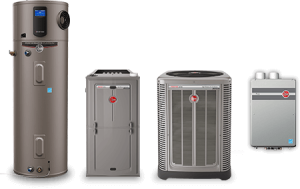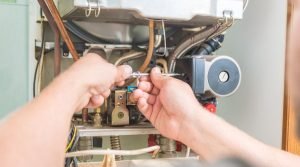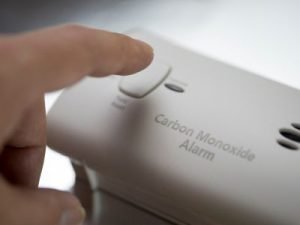(Colorado Springs Edition) – Let’s Be Real About HVAC Lifespans
Let’s be real, getting a new furnace or AC isn’t cheap. You want that thing to last as long as humanly possible, right? Most HVAC systems should give you somewhere between 15 and 25 years of service. But honestly, that’s a big range, and a lot of things can change that number. Even with the best upkeep and fixing things as they break, eventually, every heater, AC, and heat pump is going to call it quits.
So, What’s the Deal with Lifespans?
It really depends on what kind of system you’ve got and where you live (Colorado Springs weather plays a part!). Here’s a quick rundown:
- Furnaces: Good news here! Gas furnaces, if you take care of them, can run for 20 to 30 years, sometimes even longer. Usually, the heat exchanger going bad is the reason for replacement – it’s a big, pricey part. Skip maintenance or get a cheap system, and you might be looking at replacing it in just 10 years. Oil furnaces? Expect a bit less, around 10 to 15 years because they can be a bit more finicky.
- Boilers: Boilers are built tough. Think 20 to 35 years on average. Like furnaces, heat exchanger leaks are usually the end of the road.
- Air Conditioners: Most ACs will cool your Colorado Springs home for 15 to 20 years. Some might tap out closer to 10. Things like a busted compressor or corrosion are usually what lead to needing a new unit.
- Heat Pumps: These guys are workhorses, heating and cooling. Expect 10 to 20 years, with 15 being typical. Since they run more often, they can wear out a bit faster than AC-only units. Same failure points as ACs – compressor and corrosion.
- Mini-Splits (Ductless): Similar to heat pumps in lifespan, 10 to 30 years, depending on use and care.
Think About Upgrading Sooner Than Later

Yeah, those are the typical lifespans. But lots of folks in Colorado Springs swap out their HVAC systems earlier. Why? Well, older systems just get less efficient. That means higher energy bills and more repairs. Once you hit that 10-15 year mark, a new, energy-efficient system can save you cash every month – sometimes enough to make the upgrade worth it, especially if your old system is acting up a lot.
What Kills Your HVAC System Faster?
Lots of things can shorten the lifespan of your heating and cooling. Here are the biggies:
- Skipping Check-Ups: No maintenance is a recipe for disaster.
- Cheap Parts: Bad components from the start aren’t going to last.
- Wrong Size System: Too big or too small is bad news (more on that another time!).
- Bad Install: If it’s not put in right, problems are coming.
- Overworking It: Running it constantly at full blast takes its toll.
- Using it Wrong: Heating or cooling with windows open? Wasting energy and stressing the system.
- Harsh Environments: (Less of a Colorado Springs issue, but think salty air near the coast)
Honestly, skipping maintenance and getting the wrong size system are the biggest culprits. No maintenance? Things wear out way faster. Oversized system? It turns on and off too much, stressing parts like the compressor.
Got Questions About Your System? We’re Here in Colorado Springs!
Worried about your current HVAC setup? Give Elevation Mechanical a shout! We’re right here in Colorado Springs and can take a look. We’ll give you the straight scoop on how much life is left in your system. Thinking about an upgrade? We do full replacements. Just need to keep things running smoothly? We handle maintenance and repairs too.
Give Elevation Mechanical a call today (719) 460-7091! We’re here to help you stay comfortable in your Colorado Springs home, year-round.








